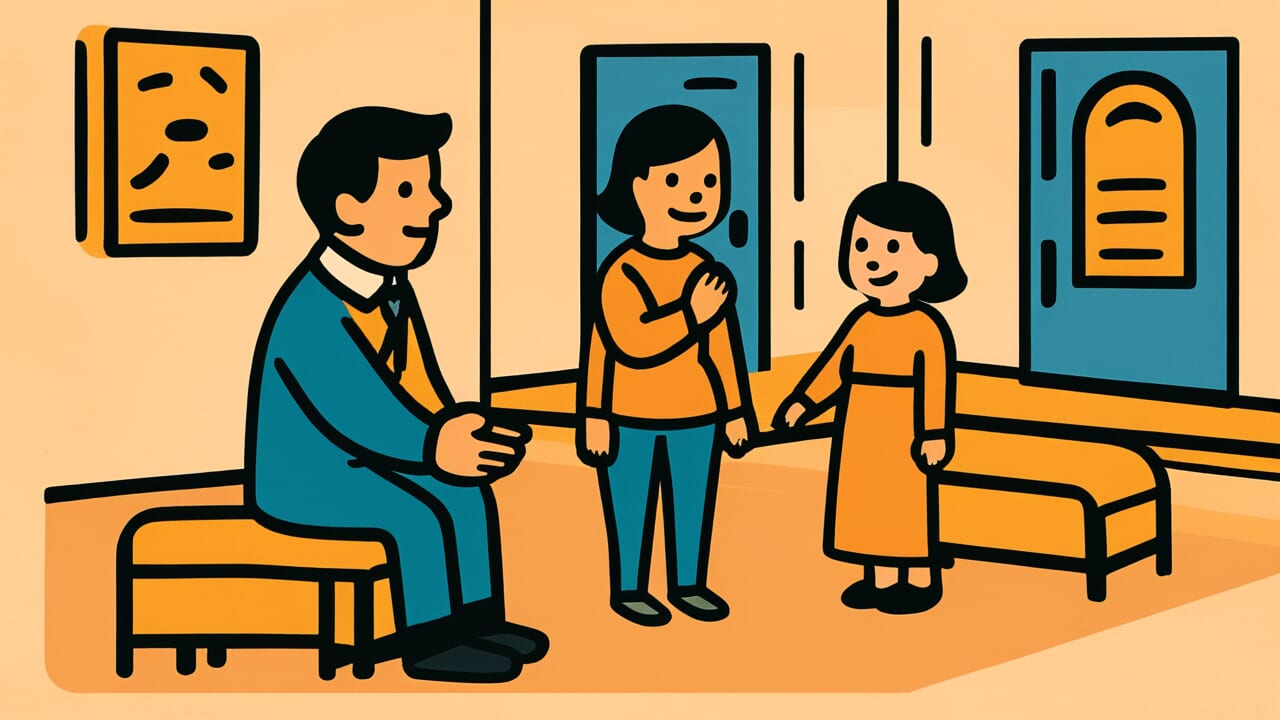How to Read “Parents are parents, children are children”
Oya wa oya, ko wa ko
Meaning of “Parents are parents, children are children”
“Parents are parents, children are children” means that parents and children are independent individuals. They should not interfere too much in each other’s lives.
This proverb shows that even with blood ties, each person has their own personality. Parents have their own lives, and children have theirs.
It warns against parents trying to completely control their children’s lives. It also cautions children against being too bound by their parents’ expectations.
Today, people often quote this saying when dealing with overinvolved parent-child relationships. For example, when parents try to interfere too much in their child’s career or marriage choices.
People use “Parents are parents, children are children” to express the importance of maintaining proper distance.
This doesn’t deny the parent-child bond. Instead, it’s a positive teaching. By respecting each other as individuals, families can build healthier relationships.
Origin and Etymology
The exact source of this proverb is unknown. However, it’s deeply connected to changes in Japanese family values.
Until the Edo period, Japan’s family system viewed parents and children as one unit. Children were often seen as extensions of their parents.
After the Meiji era, Western individualistic ideas entered Japan. The concept of the “individual” gradually took root.
This proverb likely emerged during this period of change. The parallel structure of “parents are parents” and “children are children” emphasizes that each is an independent being.
It’s a simple yet powerful expression. It represents a new value for that time—that parents and children have separate identities.
The proverb also contains compassion from the parent generation to the child generation. It reflects parents gently pushing children forward, saying “live your own life.”
It also shows children’s maturity in understanding that “parents have their own lives.” This spirit of mutual respect is condensed into these few words.
Usage Examples
- I almost interfered with my son’s job choice, but I reconsidered. Parents are parents, children are children, so I decided to watch over him instead.
- Sometimes I question my mother’s way of life. But parents are parents, children are children, so I’ll follow my own path.
Universal Wisdom
“Parents are parents, children are children” addresses one of the hardest challenges in human relationships. It’s the balance between love and independence.
No bond runs deeper than the parent-child relationship. Parents protect and raise their children at all costs. Children receive life itself from their parents.
This is why this relationship contains special difficulties. Because we love someone, we want to be deeply involved in their life. Because we worry, we want to comment on their choices.
These are natural human emotions.
But our ancestors saw the danger of being swept away by these natural feelings. No matter how much you love someone, they are a different person from you.
They have their own life. They have the right to choose and walk their own path. This proverb reminds us of this obvious yet easily forgotten truth.
Everyone struggles with the temptation to control the people they love. In parent-child relationships especially, this temptation grows stronger.
That’s why this proverb has been passed down through generations. True love means respecting the other person as an independent human being. This deep understanding of human nature lives in these words.
When AI Hears This
Looking at parent-child relationships through game theory reveals a surprising structure. In typical cooperative games, mutual cooperation maximizes both players’ gains.
But in parent-child cases, excessive cooperation creates a trap called “codependency.” For example, when parents overly involve themselves in their child’s life choices, and the child keeps meeting parental expectations, both move away from their optimal solutions.
This is the opposite of the prisoner’s dilemma. It’s a rare case where too much cooperation creates inefficiency.
What’s interesting is the solution this proverb suggests. When parents and children act as independent players maximizing their own gains, their long-term satisfaction actually increases.
Parents fulfill their own lives as parents. Children walk their own unique paths as children. In this “independent parallel strategy,” not interfering with each other’s choices actually maintains a healthy relationship.
Mathematically speaking, this is a rare situation in game theory. Each player pursuing local optimization approaches global optimization.
Because of the special parent-child relationship, strategic separation paradoxically increases both parties’ happiness. Respecting each other as separate systems is actually the most rational equilibrium point.
Lessons for Today
This proverb teaches you a basic principle of healthy human relationships.
In modern society, the proper distance between parents and children has become a major issue. We can always stay in touch through smartphones.
Perhaps this makes maintaining appropriate distance even harder. As a parent, you might interfere too much because you worry about your child’s future.
As a child, you might feel pressure to meet your parents’ expectations.
But remember this. You are you, and the other person is the other person. Even between parents and children, each person is the main character of their own life.
This isn’t cold rejection. Rather, it’s the warmth of respecting the other person as an individual.
Parents trusting and watching over their children’s choices. Children respecting their parents’ lives. Only with this mutual trust can truly supportive relationships emerge.
Why not try being a little more conscious starting today? When you want to comment on someone’s choice, take a breath.
Whisper “Parents are parents, children are children” in your mind. That small step will make your relationship with your loved ones richer.



Comments